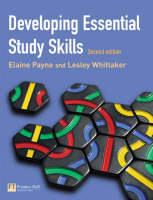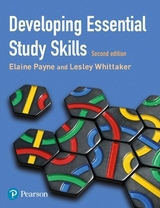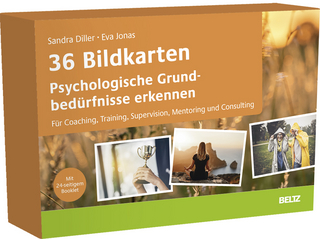
Developing Essential Study Skills with Developing Essential Study Skills Premium CWS Pin Card
Financial Times Prentice Hall
978-1-4058-4087-3 (ISBN)
- Titel erscheint in neuer Auflage
- Artikel merken
There is an increasing trend in Universities and Colleges towards independent learning, so moving towards independence in studying as quickly as possible is a major key to success. This practical book and the accompanying online course are aimed at helping you improve your skills, develop a personal development portfolio and become a more independent learner, empowering you to study more effectively and efficiently.
Straightforward language and a pragmatic approach.
An ideal package for pre-university students, those just starting university and for those studying in the UKfor the first time.
A 'how to do it' book and a 'practice as you go' online course based on years of knowledge, experience and practice which will enable you to achieve success in your studies.
PART ONE - DEVELOPING STUDY SKILLS
Introduction
Learning opportunity
Chapter 1 - Learning to learn
How do we learn?
Lifelong learning
University or college learning
Independent learning
Learning styles
Factors that influence learning
Building on learning strengths and overcoming blockages to learning
Chapter 2 - Keeping a Portfolio
What is a portfolio?
Skills audit
Reflection in your portfolio
Chapter 3 - Employability
Conduct a self analysis
Explore the career options
Developing a curriculum vitae (CV)
Preparing for an interview
Chapter 4 - Reading for study
Why are you reading?
What happens when you read?
Ways of reading
Which technique?
Selecting reading material
Other useful techniques
How to read faster
Critically evaluative reading
Chapter 5 - Communication
The process of interpersonal communication
Non-verbal communication
Written communication
Words that are often confused
Spelling
Active or passive voice?
Transitional words and phrases
Style
Glossary
Chapter 6 - Making notes
Why make notes?
Ways of making notes
Making notes from text
Making notes in lectures
Making notes from a group discussion
Abbreviations and symbols
Keeping notes
Chapter 7 - Working with numbers
Numerical data
Making data easier to handle
Describing the data with pictures
Describing the data numerical summaries
Spreadsheet software
Answers to exercises
Chapter 8 - Information technology skills
Some terms defined
Organising your work
Windows
Word processing software - Word
Spreadsheet software Excel
Presentation software - Powerpoint
Answers to exercises
Chapter 9 - Researching and obtaining information
A systematic approach to information gathering
Secondary sources
Printed resources
Other media
Other sources of secondary information
The Internet
Evaluation of information
When to stop collecting secondary information
Primary Data Collection
Analysis of data
Answers to exercises
Chapter 10 - Group and Team Working Skills
Why should students know about group dynamics?
Small group dynamics
Development of norms
Roles
Cohesiveness
Developmental stages of groups
How to know more about groups
Differences between groups and teams
Working in groups and teams at university or college
Chapter 11 - Time Management
How to manage your time effectively
Essentials of time management
Time wasters
Personal benefits from effective time management
Chapter 12 - Managing stress
What is stress?
Some consequences of stress
Causes of stress
Life events
Managing stress
Coping mechanisms
Specific stress associated with being a student
Manage your time
PART TWO - DEVELOPING ASSESSMENT SKILLS
Learning opportunity
Expectations
Assessment criteria
Presentation of assessments
Deadlines
Group assessments
Feedback
Chapter 13 - Case studies
The use of case studies
Framework for case study analysis
Presentation of answers
Chapter 14 - Presentations
Purposes of presentations
Preparation
Structure
Approach
The presentation
Visual aids
Questions
Assessed presentations
Creating a presentation using Powerpoint
Chapter 15 - Essay writing
Analyse the essay title
Finding your material
Making an essay plan or outline
Producing a rough draft
Writing the essay
Reviewing the essay
Common criticisms of essays
Writing essays under examination conditions
Chapter 16 - Report Writing
Preliminary stage
Preparation stage
Writing the report
Presentation
Review
Types of reports
Group reports
Chapter 17 - Writing dissertations or research projects
Selection of a topic
Define the research question and objective
Research proposal
Conducting the research
Writing up the research
Management of the dissertation or research project
Chapter 18 - Examinations
Why examinations?
Preparing for examinations
Revision
Written examinations
Case study examinations
Oral examinations
Practical examinations
What to do if you fail an examination
Cheating
Bibliography
Index
| Erscheint lt. Verlag | 3.8.2006 |
|---|---|
| Verlagsort | Harlow |
| Sprache | englisch |
| Maße | 190 x 247 mm |
| Gewicht | 720 g |
| Themenwelt | Sozialwissenschaften ► Pädagogik ► Erwachsenenbildung |
| ISBN-10 | 1-4058-4087-0 / 1405840870 |
| ISBN-13 | 978-1-4058-4087-3 / 9781405840873 |
| Zustand | Neuware |
| Haben Sie eine Frage zum Produkt? |
aus dem Bereich



